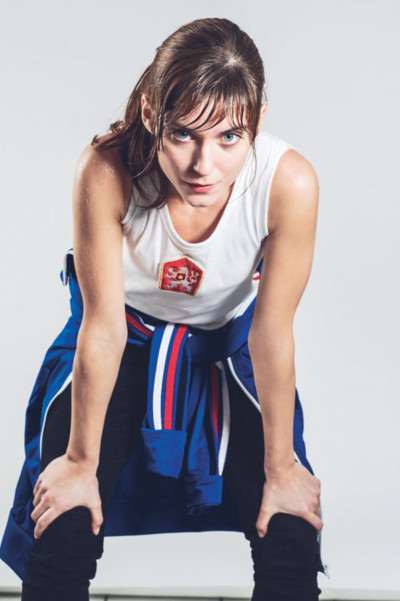Review: Fair Play - Girls With Guns (original) (raw)
★★★
“Czech out those legs…”
 Teenage sprinter Anna (Bárdos) is on the edge of making the Olympics with the Czech national team, but still needs to meet the qualifying time. She’s being brought up by her mother, Irena (Geislerová), a former tennis prodigy, now reduced to working as a cleaning lady – in part because of the defection for the West of her husband. Irena also secretly transcribes underground documents for a dissident, Marek. Coach Bohdan (Luknár) pushes Anna hard to reach her maximum potential, and gives her “Stromba”, a substance that helps her performance, but screws up her health. She stops taking it, believing it to be an illegal steroid: when her coach finds out, he enlists Irena’s help to inject her daughter surreptitiously, saying it’s the only way Anna will make the squad. Reluctantly, Irena agrees, unwilling to see her daughter lose out in the same way she did. But as the authorities close in on Marek, the two women become pawns in a political game, with their common Olympic dream now used as leverage against them.
Teenage sprinter Anna (Bárdos) is on the edge of making the Olympics with the Czech national team, but still needs to meet the qualifying time. She’s being brought up by her mother, Irena (Geislerová), a former tennis prodigy, now reduced to working as a cleaning lady – in part because of the defection for the West of her husband. Irena also secretly transcribes underground documents for a dissident, Marek. Coach Bohdan (Luknár) pushes Anna hard to reach her maximum potential, and gives her “Stromba”, a substance that helps her performance, but screws up her health. She stops taking it, believing it to be an illegal steroid: when her coach finds out, he enlists Irena’s help to inject her daughter surreptitiously, saying it’s the only way Anna will make the squad. Reluctantly, Irena agrees, unwilling to see her daughter lose out in the same way she did. But as the authorities close in on Marek, the two women become pawns in a political game, with their common Olympic dream now used as leverage against them.
This makes an interesting companion piece to Goldengirl, with both films telling a similar story about female runners in the early eighties, whose family and mentors are prepared to go to any lengths to achieve success at the Olympics. Goldengirl unfolded in the lead-up to 1980’s Moscow Games, but subsequent history rendered it obsolete, as America boycotted them. Fair Play shows things from the other side of the Iron Curtain, in the lead-up to the 1984 Los Angeles games – which the Eastern Bloc similarly spurned. The benefit of time allows the film to incorporate this history into an ironic postscript for its narrative and, while less SF-oriented than its American cousin, the attitudes of both heroines, and the approach of their supporting cast, have a surprising amount in common. The main difference here is, the doping regime is state-sanctioned; in Goldengirl, it’s free-market forces driving the “win at any costs” mentality.
The piece makes a pointed connection between Anna and Irena’s situations, both coming under pressure to compromise their personal morality for personal gain – one sporting, the other judicial. It’s this stand which represents the true heroism to be found here, though the script struggles to escape from the obvious clichés of Soviet Bloc culture. The other main weakness is the actual athletics, which never give the impression of anyone moving at more than an energetic jog, while the thread involving Anna’s relationship with a boy doesn’t go anywhere of significance at all. In the final analysis, it’s a worthy enough effort, if rather too earnest to be wholly successful. You can see why it became the official Czech entry for this year’s Academy Awards – and equally as much, why the Academy then decided it wasn’t worthy of making the final nominees.
Dir: Andrea Sedláčková
Star: Judit Bárdos, Roman Luknár, Anna Geislerová, Ondrej Novák